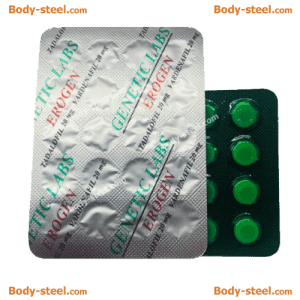Oral steroids
Oral steroids: a closer look
Oral steroids, also known as corticosteroids, are a type of medication that can be taken by mouth to treat a variety of medical conditions. These powerful drugs mimic the effects of hormones your body naturally produces in your adrenal glands, which sit on top of your kidneys.
Types of oral steroids
There are several types of oral steroids, with prednisone, prednisolone, and dexamethasone being among the most commonly prescribed. Each type has its own set of indications and is chosen based on the specific needs of the patient.
How oral steroids work
When you take oral steroids, they pass through your liver and enter your bloodstream. Once in the bloodstream, they travel to various parts of your body and exert their effects. They reduce inflammation by decreasing the activity of the immune system, which can be beneficial in diseases where inflammation is part of the disease process.
Conditions treated with oral steroids
Oral steroids are used to treat a broad range of conditions, including:
- Autoimmune diseases like rheumatoid arthritis, lupus, and multiple sclerosis.
- Inflammatory bowel diseases such as Crohn’s disease and ulcerative colitis.
- Allergic conditions, including severe asthma and eczema.
- Other conditions like adrenal insufficiency and certain types of cancer.
Benefits of oral steroids
The primary benefit of oral steroids is their ability to quickly reduce inflammation and suppress the immune system, which can provide relief from symptoms of the conditions they are used to treat. This can improve the quality of life for patients suffering from chronic inflammatory conditions.
Potential risks and side effects
Despite their benefits, oral steroids can cause a range of side effects, particularly when used for long periods or at high doses. Some of these side effects include:
- Weight gain and increased appetite.
- Stomach ulcers.
- High blood pressure and increased risk of heart disease.
- Mood swings and behavior changes.
- Increased risk of infections due to suppressed immune function.
Managing side effects
To minimize the risk of side effects, doctors will prescribe the lowest effective dose for the shortest possible time. Patients on long-term steroid therapy may need regular check-ups to monitor for side effects, and they may be given additional medications to help protect against some of the more serious side effects, like bone loss.
Conclusion
Oral steroids are a critical component in the management of many inflammatory and autoimmune conditions. While they offer significant benefits, it’s important for patients to be aware of the potential risks and to work closely with their healthcare provider to manage their use of these medications effectively.
Showing 1–16 of 42 results
-

Anapolon 50 tablets (50 mg/1 tablet)
$55.00 Add to cart -

ANASTRAZOLE 1MG/25TAB Magnus Pharmaceuticals
$40.00 Add to cart -

ANASTROGEN GENETIC LABS 25 TAB X 1 MG/TAB
$40.00 Add to cart -

Anastrozol
$48.00 Add to cart -

Anastrozol “Prime Labs” (100tab/1mg)
$36.00 Add to cart -

Arimidex (20 tablets)
$50.00 Add to cart -

Cabergoline 0,5mg/20 tab Magnus Pharmaceuticals
$70.00 Add to cart -

Clenbuterogen Genetic Labs 100 tab x 40 mg/tab
$45.00 Add to cart -

CLENBUTEROL 40mcg/ 100 tab Magnus Pharmaceuticals
$35.00 Add to cart -

Clomid (100 tablets)
$45.00 Add to cart -

Clomid (50 mg/25 tab) Magnus Pharmaceuticals
$35.00 Add to cart -

Clomid Prime Labs 50 tab x 50 mg/tab
$35.00 Add to cart -

Clomigen Genetic Labs 20 tab x 50 mg/tab
$29.00 Add to cart -

Erogen 40 (Viagra) Genetic Labs 20 tab x 40 mg/tab
$67.00 Add to cart -

Genetic Labs Oxymethogen 60 tab x 50 mg/tab
$50.00 Add to cart -

GERANABOL 90 TABS Magnus
$40.00 Add to cart
